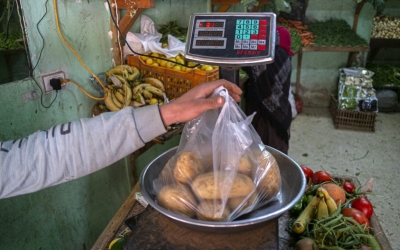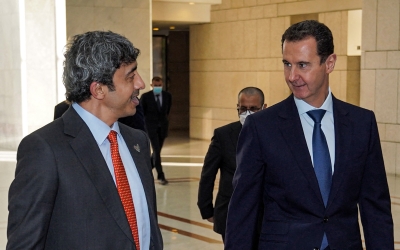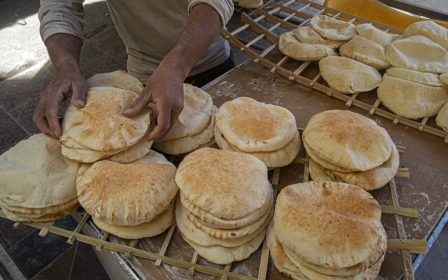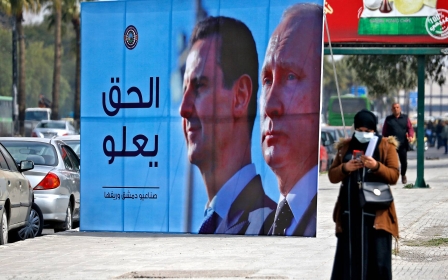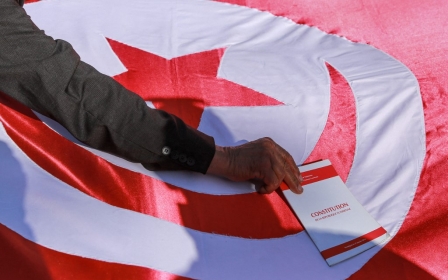Arabic press review: Egypt's export controls due to Ukraine war halt Gaza rebuilding
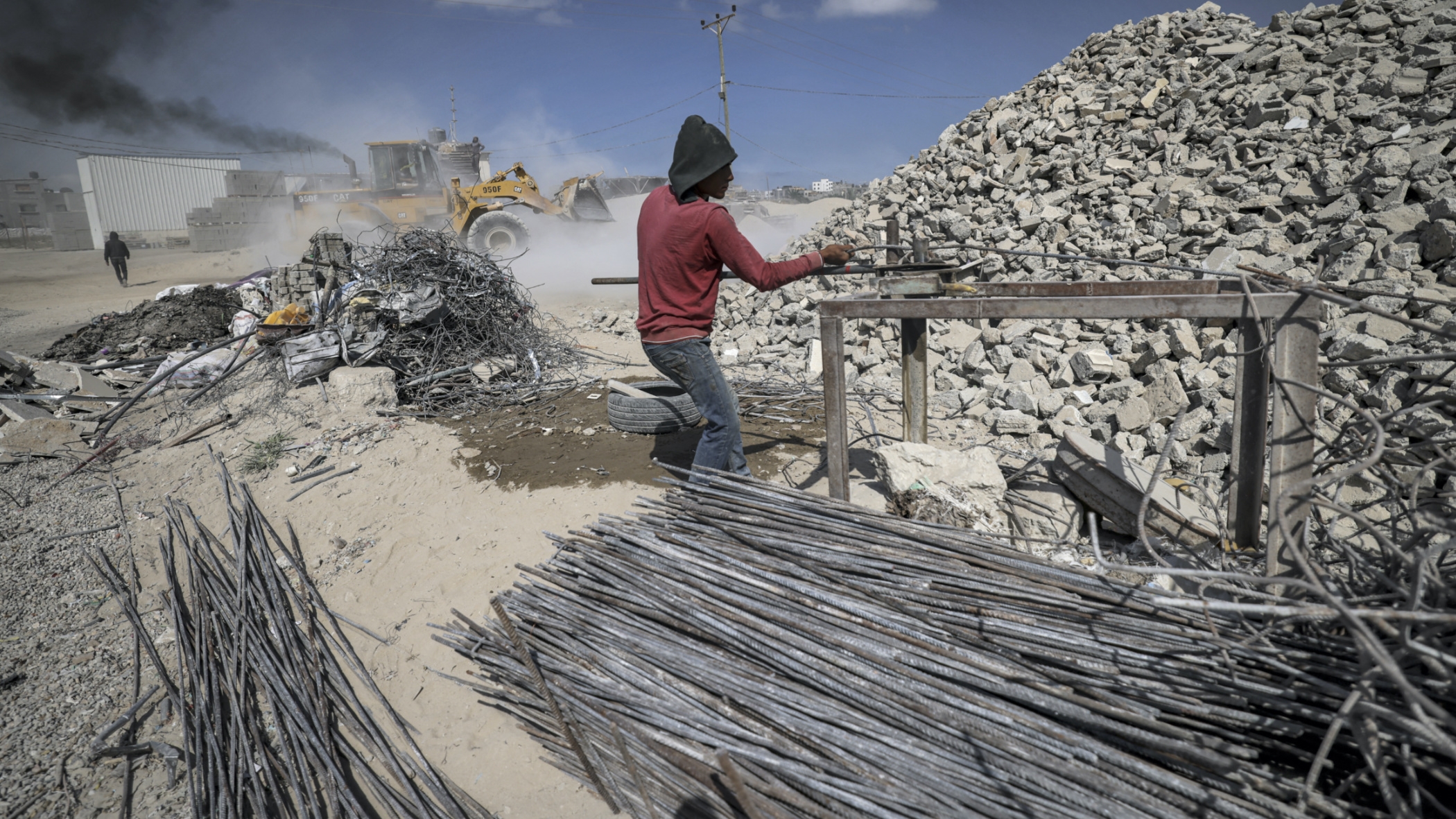
Egypt controls hit reconstruction projects in Gaza
Egyptian authorities have imposed restrictions that will lead to the termination of reconstruction projects in the Gaza Strip, according to a report by Arabi Post.
Gaza is witnessing a sharp decline in cement stocks and building materials due to restrictions imposed by the Egyptian side on its exports of building materials to the Strip.
A Hamas source told Arabi Post that the decision to reduce exports of strategic goods was taken due to the ongoing war between Russia and Ukraine to protect the needs of the Egyptian local market.
The restrictions have forced the Palestinian Contractors Union to suspend the implementation of contracted projects after the sharp surge in prices of building materials by more than 30 percent, according to the news website.
In light of these restrictions, cement prices increased by more than 40 percent, iron prices increased by more than 35 percent, while finishing materials, such as aluminium and granite, increased by more than 25 percent.
The Gaza Strip sustain heavy, widespread destruction in Israeli attacks during a conflict between Israel and Hamas in May 2021.
A source in the General Authority for Crossings in Gaza said that cement imports coming from Egypt have decreased from 3,000 tonnes per week to less than 1,000 tonnes - a 70 percent decline since 10 March.
The source added that the quantities supplied through the Egyptian side are now limited to the needs of reconstruction projects financed by Cairo. Imports of aluminium and granite were also halted.
"The imports coming from Egypt cover about 40 percent of Gaza Strip’s needs in construction materials", the source said.
The new restrictions have caused big increases in prices due to low supply and scarcity in markets, which has led to the suspension of dozens of construction and reconstruction projects.
The source said that it is difficult to compensate for the quantities provided by Egypt to cover the requirements of the reconstruction process.
Moreover, they added, the process of searching for new suppliers from countries such as Israel, Jordan or Turkey will not be economically feasible due to the high prices of these materials, which are much higher than those from Egypt.
This high cost of imports from these countries is due to steep transportation and insurance costs required for any imports coming from outside Egypt to the Gaza Strip.
Syrians in the UAE fear extradition following Assad’s visit
Syrian opposition and human rights activists in the United Arab Emirates are worried that the outcome of renewed relations between Damascus and Abu Dhabi may lead to their expulsion or extradition, according to Arabi 21.
The official website of the People’s Assembly of Syria lists five Arab countries with whom Damascus has extradition treaties, including Yemen, Morocco, Tunisia, Libya and Egypt.
However, the website of the Emirati Ministry of Foreign Affairs lists “Extradition and Judicial Cooperation” among the agreements between the UAE and Syria.
The extradition agreement, signed in 2003 in Abu Dhabi, stipulates "judicial and legal cooperation in civil, commercial, and criminal matters, and extradition".
“The UAE is not a state of law. We cannot bet on the law to protect the rights of Syrian dissidents in the UAE, if they existed or if they transited through its territories,” Mohammed bin Saqr al-Zaabi, an Emirati dissident and judicial adviser based in London, told Arabi 21.
"The UAE extradites anybody it wants without resorting to the law or the Interpol…based on the orders and instructions of the de facto authority of [Abu Dhabi Crown Prince] Mohammed bin Zayed, the architect of counterrevolution operations in the region," Zaabi said.
The Syrian National Coalition has denounced the UAE's reception of Syrian President Bashar al-Assad in Abu Dhabi last week, describing the visit as a "dangerous precedent" and "a departure from the decisions of the Arab League, a violation of international sanctions, and a reward for Assad for his crimes."
Saudi privileges offered to Ben Ali’s wife
Saudi authorities have granted Leila Trabelsi, the widow of the late Tunisian president Zine El Abidine Ben Ali, and her family Saudi citizenship, a luxury villa and a monthly salary exceeding $100,000, according to private Tunisian radio station Mosaique FM.
The station claimed that Trabelsi and her daughters hold fake Irish passports, and that an unnamed Tunisian was involved in issuing them illegally.
Mosaique FM also alleged that the widow of the deposed Tunisian president was involved in a case of money laundering, and smuggling cash from Saudi Arabia to Tunisia to invest in real estate projects.
In an interview with the radio station, Trabelsi denied these allegations, saying that she has filed a complaint before the Saudi and Tunisian judiciary against the wife of Bin Ali’s chef for stealing her money.
Trabelsi and Ben Ali fled to Saudi Arabia on 14 January 2011 following the eruption of the Tunisian revolution.
She said she would publish the memoirs of Ben Ali in a few months. She noted that the book will include documents about what happened during the last days before the family left Tunisia, information on the amount of money smuggled out of the country, and the people who "betrayed" her husband.
*Arabic press review is a digest of news reports not independently verified as accurate by Middle East Eye
Middle East Eye propose une couverture et une analyse indépendantes et incomparables du Moyen-Orient, de l’Afrique du Nord et d’autres régions du monde. Pour en savoir plus sur la reprise de ce contenu et les frais qui s’appliquent, veuillez remplir ce formulaire [en anglais]. Pour en savoir plus sur MEE, cliquez ici [en anglais].


